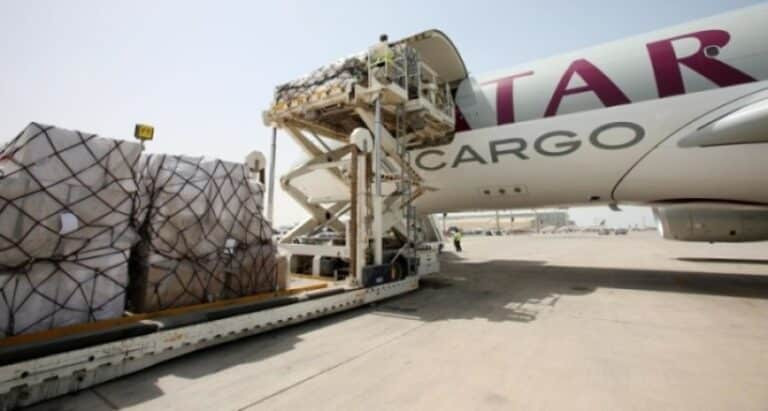Qatar Airways Group chief executive, Akbar Al Baker forecasts legacy carriers will soon exit the air cargo market – on the eve of his airline becoming the third largest cargo operator and outlining expansion plans.
Speaking on 27 October at Hamad International Airport, where the airline held a media day and press conference, in Al Baker’s opinion “at least one or two major cargo players will bow out of the industry”.
“Legacy carriers have such high overheads, they cannot compete with efficient airlines like us, there is a shift from legacy to us,” Al Baker says. “Carriers which have been around for the last 50 to 60 years have created an infrastructure incompetent for current market conditions,” he adds.
Al Baker had a pop at European legacy carriers of being more concerned with protecting their turfs and looking to squeeze the maximum from customers “by giving them too little” rather than facing up to competition.
He feels they should do business with Qatar like IAG Cargo has: “They should realise we are going to exist and not going evaporate, as with IAG it is a win, win. It is in their interests to work with us. Instead of operating inefficiently, they could work with us.
“I’m open for business with anybody,” Al Baker adds. “In the interests of Qatar Airways, I’d even do business with the devil.”
Al Baker questions why nobody talks about government owned Chinese, Russian, Indian and African carriers of being subsidised like they do of Qatar Airways, as many have received private equity through their governments.
He also welcomes a potential merger of China’s big three carriers, as it would allow more slots to be released through synergies, and adds: “I hope in future we can partner with the Chinese carriers.”
Al Baker says according to the International Air Transport Association’s freight tonne kilometre statistics for July, it has moved into third spot in the rankings.
“Our cargo capability is a major component in driving our group success and growth and will remain a focus of our expansion in the coming years,” Al Baker says, and adds: “We are aiming for 25-30 per cent of total revenue to come out of the cargo business.”
He revealed construction of a second cargo terminal at Hamad, which is targeted for completion in 2018.
The two-storey facility will have capacity for three million tonnes of cargo, over an area of 110,000 square metres, and give it a capacity of 4.4 million tonnes and the carrier could further expand it to cover seven million tonnes of freight in the future.
Qatar Airways has also launched specialist cargo services to reap rewards on offer in certain markets, including QR Equine to transport horses, and QR Express, in response to the rise in e-commerce, as Al Baker says it wants to tap into the “lucrative” express freight market, which gives high yields and margins.
Qatar will receive a seventh Airbus A330 Freighter in December, an eighth in March 2016, a ninth Boeing 777 Freighter in June 2016, a 10th in July 2016, an 11th in October 2016 and another in March 2017.


